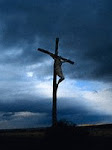
Tags: Librarian, books, reading, literature.
When I was in grammar school we had a librarian who run everything with quiet efficiency. She did not seem to be overly aware of the different students, and even the ones of us who haunted the library were just so many nameless children. At the beginning of the year, when I reached the eighth grade, I learned that we had a new librarian. Her name, according to the memo that circulated the first day at school, was Miss Curry. Before the end of the proceeding year, I had been placed on a ‘list’ in the library along with some other troublemakers. My problem was the fact that I was reading too many books, and someone in the school administration office decided that it wasn’t a good idea from an academic standpoint. I was limited to one book per week, and everything was checked against an approved reading list. I had read one of Jessie Stuart’s books, but was banned from reading the others until I reached high school. I had read all of the books on the grade school list, and was reading some of them for the second time.
When I made my first trip to the library, I decided I would be polite, introduce myself to Miss Curry, and use the same wily skills I had used on the previous librarian to convince her that I should be allowed to read Ben Hur. I waited until after lunch, gave myself a pep talk and tried to calm my nerves. I forced myself to the head of the line and entered the library. I came to a halt just inside the door, staring. Miss Curry saw my hesitation and came slowly toward me. Curry was incredibly old by my eighth grade standard, and had a striking resemblance, both in dress and appearance, to Minerva McGonagall, the headmistress at Harry Potter’s school at Hogwarts. I could feel my heart sinking. Her face was stern and unsmiling. She asked my name. I finally managed to tell her and saw her chin lift slightly. “Ah, yes,” she said. “I have you on my list.”
The other students in my eighth grade group quickly selected a book and went through the checkout procedure while I hunted frantically for something I hadn’t read. “Come here, young man,” she said. I was afraid to look directly at her but I did as she commanded. She led me down the stacks to one of the sections of wall shelves that had previously held some pieces of pottery and useless displays. She waved her hand at the rows of books then looked at me again. “This is part of my personal library,” she said. My eye quickly fell on Carl Sandberg’s biography of Abraham Lincoln. I ran my hand along the covers and could feel my fingers tingle. “These books belong to me, and they aren’t subject to the library checkout rules,” she said. “They are reserved for the more mature students . . . like yourself.”
This was the beginning of a personal and special relationship between us. Miss Curry was a published author, an avid reader, and personally acquainted with Carl Sandberg, Jessie Stuart, and William Faulkner. As I continued my efforts to write something worthwhile, Miss Curry became my most knowledgeable critic. Today, whenever I tackle a difficult writing project, I can still hear her gentle voice ringing in my ears. “Never give up, never give up, never give up . . .”

























